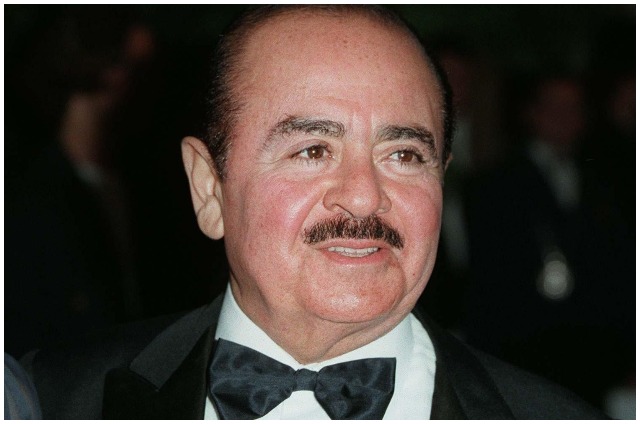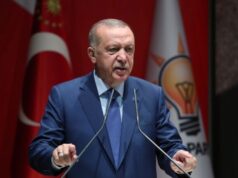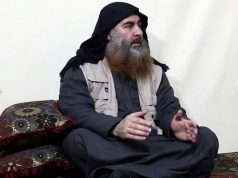

Istanbul (dpa) – Twin bomb blasts on Saturday killed 86 people gathering for a pro-Kurdish peace rally in the Turkish capital, Ankara, in the worst attack in Turkey’s modern history.
The Turkish government strongly condemned the “terrorist attack,” which injured 186 people, of whom 28 remain in intensive care, according to figures from Health Minister Mehmet Muezzinoglu.
No group has claimed responsibility for the attack, which comes just three weeks before snap general elections set for November 1 and the G20 heads-of-government summit later next month, raising security concerns.
The attack had echoes of a bombing in Suruc, southern Turkey, in July, which killed 34 people at a pro-Kurdish gathering and shattered a two-year ceasefire between Kurdish militants and the state. That attack too was not claimed, but Turkey blamed Islamic State.
Selahattin Demirtas, the leader of the pro-Kurdish People’s Democratic Party (HDP) which supported the peace rally, held the Turkish government accountable for the simultaneous explosions in Ankara.
“This is an attack by the state against the people,” he said, referring to a “massacre.”
The party, which was also critical of the government over Suruc, accused the police of not securing the rally in the capital and attacking demonstrators with tear gas when they aided the wounded.
The HDP said the blasts appear to have been carried out by suicide bombers.


Turkish President Recep Tayyip Erdogan issued a statement condemning the “heinous attack” and said that investigations are under way. He pledged the perpetrators of the blasts would be brought to justice.
“There can be no justification for such a horrendous attack on people marching for peace,” NATO Secretary General Jens Stoltenberg said in condemnation of the attack on NATO member Turkey.
“All NATO allies stand united in the fight against the scourge of terrorism,” Stoltenberg said.
Videos on social media captured the moment of the first explosion: young men and women were singing, dancing and waving banners as a massive fireball erupts, causing chaos.
Some of the bodies lay on the streets, covered by the flags and banners of various trade unions and leftist groups, including the HDP, involved in organizing the rally.
Blood pockets stained the asphalt which were also scattered with debris, including shrapnel, from the blasts.
Ambulances in the initial hour focused on ferrying the wounded to hospitals, amid scenes of panic in the area of the train station where the blasts went off. There were calls for donations of blood, as medics struggled under the strain.
The blasts were so strong one witness described being “thrown in the air for 2 or 3 metres.”


The peace rally was called ahead of upcoming elections and after violence erupted in July between the Turkish Army and the Kurdistan Workers’ Party (PKK) militant group, ending a two-year ceasefire.
The PKK, in a statement issued shortly after the blasts, called on its militants to halt all further armed actions against the state, unless attacked. There had been reports the group planned such a call ahead of the election, but the government snubbed the proposal.
It remained to be seen how the conflict with the PKK, which says it is fighting for greater rights for the Kurdish minority, would now play out.
Hundreds have died in the past 10 weeks, mostly in the south-east, including members of the security forces, militants and civilians. Turkey has also been launching airstrikes against PKK bases in northern Iraq.
Kurdish fighters linked to the PKK have been the most potent force on the ground in Syria battling the extremist group.
Demirtas, the Kurdish leader, drew a line between the incident and the Suruc attack and a double-blast at an HDP rally in Diyarbakir, a mostly Kurdish city two days before June parliamentary elections, which killed four people.
The HDP has been critical of the security crackdown in the south-east while calling for all sides to refrain from violence. Turkish nationalists’ anger towards the PKK has been growing.
Prime Minister Ahmet Davutoglu has been convening a high level security meeting with the police and intelligence services.
The US Embassy in Ankara condemned the attacks. “All of us must stand united against terror,” the embassy said on its Twitter feed.
The explosions in Ankara took place several minutes apart, according to reports, with the first going off at around 10 am (0700 GMT).
The conflict between the state and the PKK, ongoing since 1984, has left more than 40,000 dead, primarily in the south-east of the country, which has a mostly Kurdish population. The minority group makes up at least 15 per cent of the country.










